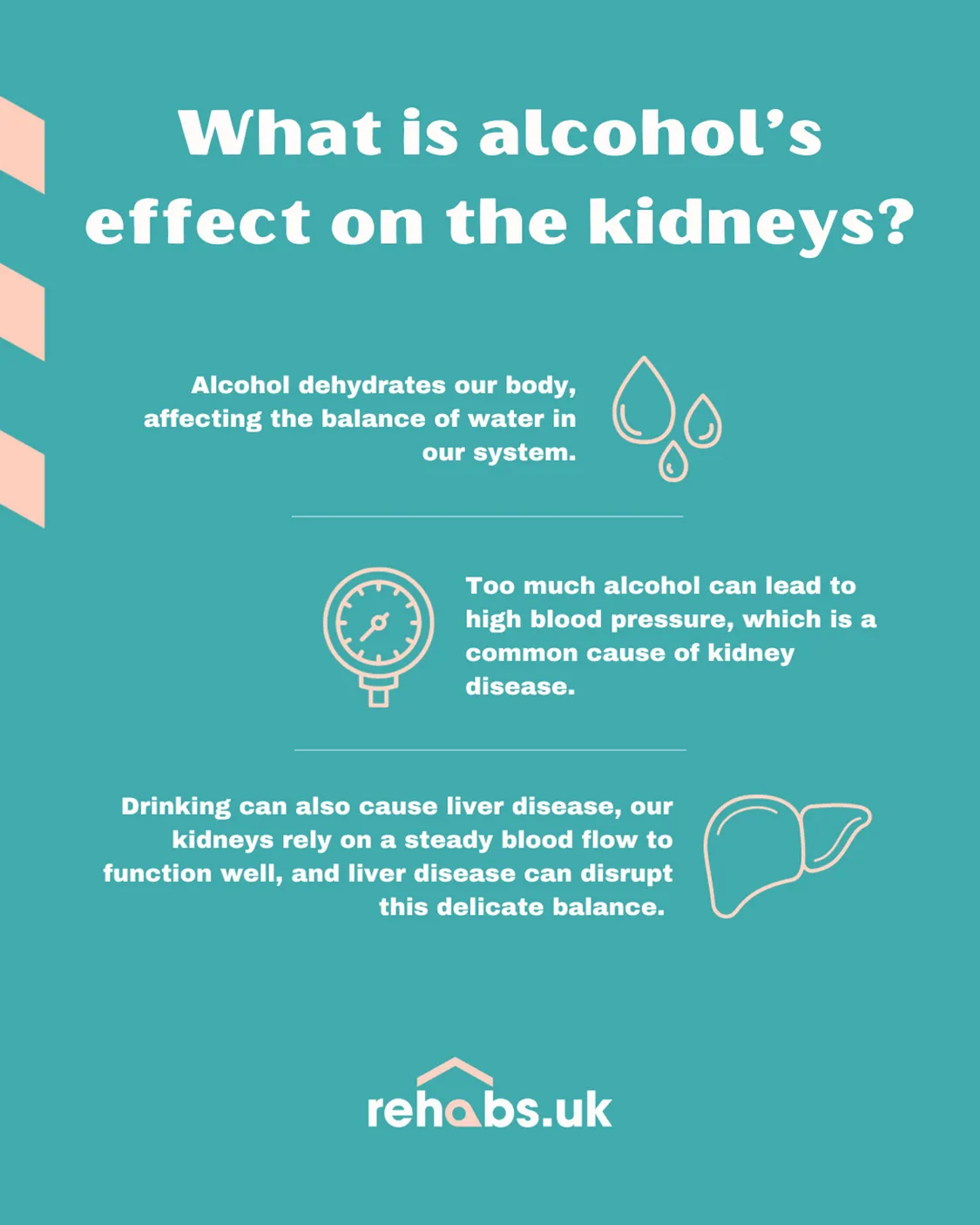29 Sept 2023
When we talk about the effects of alcohol on our health, our kidneys often take a backseat in the conversation. Although consuming alcohol does directly affect the kidneys, it isn’t always the first concern with rising rates of mental health overpowering the discussion. However, the truth is that excessive alcohol consumption can wreak havoc on these vital organs, leading to various complications. Let's dive into the world of kidney health and its relationship with alcohol.
Can Drinking Too Much Be Harmful to Your Kidneys?
The connection between alcohol and kidney health is undeniable. Your kidneys play a crucial role in filtering waste and excess fluids from your body. However, when you consume alcohol in excess, your kidneys face additional stress. The extra stress can continue to increase over time and cause the kidney to deteriorate. The diuretic effect of alcohol can lead to dehydration, putting extra strain on these vital organs. Over time, this can impair kidney function and increase the risk of kidney problems.
Some people may experience pain from their kidneys after drinking. So, what helps kidney pain after drinking? According to Health match, applying a heat pad can help relieve pain from the back and side which is caused from the kidneys. It is also important to keep hydrated, this can help prevent things such as UTI’s. Avoid drinking more alcohol, as well as coffee or other stimulants anything that is a. stimulant as well as this. To ease pain, warm baths with Epsom salt is an excellent remedy can ease pain. Although these are supposed to help reduce pain, if you have continued or severe pain around your kidneys from drinking alcohol it is vital to contact a healthcare professional as it might be a more serious and causing problems for your health.

Why Does Drinking Cause Kidney Disease?
Understanding what really is behind alcohol-induced kidney disease is essential. According to some research into alcohol-related kidney disease published in the NCBI within reputable medical journals, excessive alcohol consumption can lead to inflammation and oxidative stress in the kidneys, damaging their delicate filtering system. Additionally, it can raise blood pressure, which is another risk factor for kidney disease.
Some data rehabs suggests that alcohol consumption and kidney stones could be related. Claiming excessive drinking on a regular basis and consuming certain types of alcohol such as beer and grain alcohol can increase the chance of kidney stones developing. Although there are other studies that claim there is no direct link but alcohol doesn’t help pass kidney stones and it doesn’t contribute to the overall health of someone’s kidney function.
What Are the Warning Signs of Kidney Disease?
Kidney disease often progresses silently over time – whether you binge drink at the weekend or have a couple of drinks every night the alcohol consumed will have some effect on the liver until it reaches an advanced stage. However, there are warning signs you should be aware of:
List Signs/Symptoms
Changes in Urination: This includes increased frequency, blood in urine, and foamy urine.
Swelling: Particularly in the legs, ankles, and feet.
Fatigue and Weakness: Kidney function is closely tied to energy levels.
High Blood Pressure: Often a consequence of kidney damage.
Nausea and Vomiting: Due to a build up of waste products in the body.
Loss of Appetite: Associated with a metallic taste in the mouth.
Muscle Cramps: Caused by electrolyte imbalances.
Can You Reverse the Effects of Drinking on Your Kidneys?
The good news is that, with early detection and lifestyle changes, it's possible to halt or even reverse some of the damage caused by alcohol to your kidneys. Reducing alcohol intake, staying well-hydrated, and maintaining a healthy diet and lifestyle can all contribute to kidney health. In the UK, excessive drinking is often normalised and people don’t understand the real impact it can have on your health. Many people wouldn’t know what is considered a ‘reasonable’ or ‘healthy’ amount of alcohol. Many individuals drink more than the recommended units per week within a single day. According to experts, binge drinking can raise a person’s blood pressure significantly which can lead to ‘acute kidney injury’. In these cases, dialysis is needed to get the kidneys working back to normal function. TAlthough this is dangerous for the individual as although it can repair itself over time, but for otherssome it can cause long-lasting or even permanent kidney damage. It's essential to consult a healthcare professional such as Rehabs UK for personalised guidance.
How to Get Help?
While the harmful effects of alcohol on the kidneys are a lesser-discussed topic, they are no less significant. Understanding the connection between alcohol consumption and kidney health, recognising warning signs, and taking proactive steps can help you protect these vital organs and maintain your overall well-being. Your kidneys deserve your care and attention, so let's raise awareness and make informed choices about alcohol consumption.
If you suspect that your kidneys may be affected by your alcohol consumption, or you’re worried about a loved one’s alcohol intake, seeking help is crucial. Kidney issues are serious but can be manageable, especially when detected early. Don't hesitate to reach out to a healthcare provider for evaluation and guidance on making positive changes to protect your kidney health.
